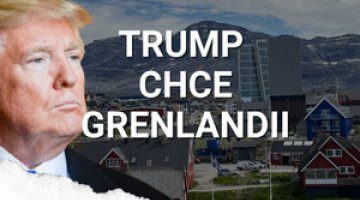Signs of rising tensions within the Russian elite
In recent months there have been signs of growing tensions within the Russian elite. The latest manifestation of this was seen in a dispute between members of the government’s so-called economic bloc during the St. Petersburg International Economic Forum (18–20 June), which Vladimir Putin addressed at the end of the event. The course of the discussions highlighted a number of discrepancies among decision-makers regarding their assessment of the economic situation of the Russian Federation. This occurred despite the tightly controlled media narrative in Russia.
The revealed differences mainly concerned three issues: the prospects for continued economic growth, the optimal value of the rouble, and the return of Western – primarily American – companies to the Russian market. A conflict within the Russian elite, as reported by foreign and independent Russian media outlets, served as the backdrop to these disagreements. According to these sources, there is a deep rift among Russian decision-makers over economic matters, with the main point of contention being the monetary policy pursued by Elvira Nabiullina, the governor of the Central Bank of Russia (CBR). She has allegedly been accused of stifling Russian business activity by prioritising the fight against inflation and maintaining high interest rates. The main critics of her approach reportedly include Sergey Chemezov, head of the state-controlled company Rostec, which is involved in arms manufacturing, and Anton Siluanov, Russia’s Minister of Finance.
The disputes within Russia over economic policy strategy, ongoing since nearly the beginning of the Russian invasion of Ukraine and the resulting crisis in relations with the West, are increasingly becoming visible in public. They indicate that the rising costs of the war and the ongoing sanctions regime – alongside instability in energy markets – are exacerbating the problems faced by the Russian economy. These issues are also increasingly generating domestic political tensions, although they are not expected to pose a threat to Putin’s system of power in the near future.
Commentary
- Russia’s economic slowdown is intensifying the competition for state resources and triggering disputes over policy priorities. The debate on the state of the economy, which took place during the St. Petersburg Forum, corroborates this view. During a public panel discussion, Maxim Reshetnikov, Russia’s Minister of Economic Development, stated that the country was ‘on the verge of recession’. Other speakers – the Central Bank governor and the Finance Minister – presented opposing views. They referred to the current period of ‘economic cooling’ and an ‘exit from overheating’. Nabiullina reiterated her thesis, first expressed in July 2024, that Russia no longer had the resources which had previously enabled economic growth. These critical assessments stood in contrast to the optimistic view of the economic situation and its future development presented by Putin during the forum’s closing session, when he joked about the divergent opinions.
- These discrepancies reveal the conflicting interests guiding the heads of the various components of the government’s so-called economic bloc. For the CBR, maintaining sufficiently high interest rates is crucial for fighting inflation, including by strengthening the currency and curbing demand. However, from the perspective of balancing the budget amid record levels of public spending – an issue that is a priority for the Finance Minister – a strong rouble poses a certain challenge. Meanwhile, the high cost of credit is limiting business activity, hence Reshetnikov’s stark remarks.
- It can be assumed that the conflict over the direction of Russia’s economic policy will intensify due to the economic slowdown (the CBR forecasts GDP growth of 1–2% this year, compared to 4.1% in 2024 according to official data) and the dwindling available resources amid continually rising war-related expenditures. External pressure in the form of low oil prices, which make it more difficult to balance the budget, is another negative factor (see ‘Russia’s budget under pressure from low oil prices’).
- Despite Russian declarations, the limited and non-public participation of US companies at the forum indicates a lack of broader interest in returning to Russia at this stage. According to Kirill Dmitriev, head of the Russian Direct Investment Fund and one of the Kremlin’s envoys in talks with the US, ‘over 70’ representatives of American companies allegedly took part in the St. Petersburg event, although ‘many of them’ did not make this public (the session they attended was closed to the media). In February, Dmitriev had announced that US businesses would return to Russia as early as the second quarter of this year, though this has not yet occurred. The head of the American Chamber of Commerce in Russia told the Russian media that there is currently no ‘long queue’ of entities seeking to return to the Russian market, with only ‘one or two companies’ showing genuine interest. This suggests a lack of significant progress in rebuilding economic cooperation between Russia and the United States, as well as deep caution on the part of US business regarding reinvesting in Russia.





